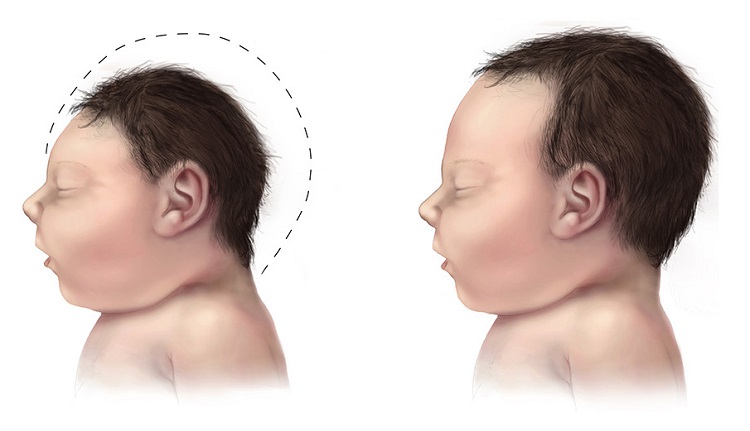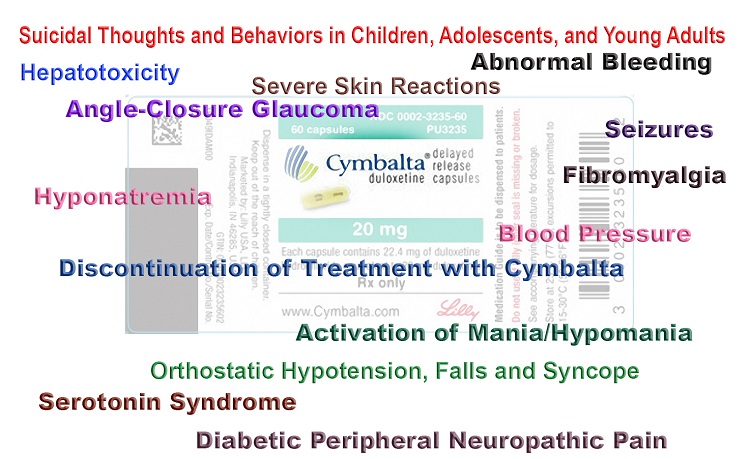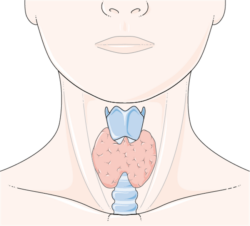On and off over the last several years, I have had peripheral neuropathy along with a number of other strange symptoms like air hunger, light and sound sensitivity, and balance and gait issues that I believe are related to an undiagnosed thiamine deficiency.
Peripheral Neuropathy, Air Hunger, Dizziness, Altered Vision and Other Symptoms
I have always taken pretty good care of myself as well as taking supplements. I should note, that for the year prior to my health decline, I was drinking a lot of coffee, approximately 40-60 ounces per day. I have since learned that coffee diminishes thiamine. When I began to develop the neuropathy, I didn’t really know what it was. The strange sensations would come and go, but it became more and more intense in my legs and feet. Last summer, I also started to feel similar vibrations in my rib cage. It was extremely uncomfortable.
In addition to the neuropathy, I would wake up sometimes during the night gasping for air. Toward the end of last summer, I could really feel my energy slowly waning and in November of 2019, I had the flu. After I recovered from the flu, I still felt exhausted and weak. I went back to the doctor in December, 2019 and was found hypothyroid and put on Levothyroxine. I have been diagnosed with Hashimoto’s Thyroiditis. Anyway, I did not feel much better and I went back in January, 2020. I had a chest x-ray which showed lung inflammation and was told it could be COPD or asthma. I was asked if I had been smoking and I said it had been 35 years since I’ve smoked. (I am now 61.) At this point, I had some serious nervous system disorder signs, which I now think were the signs of both dry and wet Beriberi.
My symptoms had progressed to the point that I was extremely sensitive to light and sound and had extreme lightheadedness/dizziness. My vision plane was tilted to maybe like a 30 degree angle. My gait was weird at times and my balance was terrible. I received a general blood test and was also tested for Lyme disease, Lupus, RA and other autoimmune diseases, with normal results. They also tested my adrenal and parathyroid hormones and that came back normal. My body overall had this continuous buzzing type of sensation. I am normally social but felt so bad that I wanted to withdraw from people.
Was It Thiamine?
I found Drs. Lonsdale and Marrs information about thiamine and started on Allithiamine in mid-March 2020 and continued to see the chiropractor. I started with one, 50mg capsule per day and now am up to three 50 mg capsules a day. I plan on increasing to four capsules per day soon. The dizziness, balance problems, visual disturbances, light and sound sensitivity issues, and gait issues are pretty much gone.
What has worsened is that I have a hiatal hernia that never really bothered me that has begun to bother me a lot over the last 4-6 weeks. When I am having a flare-up, I am short of breath and my abdomen feels extremely tight between my ribs. This happens every few days. I feel that I have been healing but the abdominal discomfort and the effect it is having on my breathing is extremely uncomfortable at times. I am wondering if it is normal for one set of symptoms to resolve and a new set to arise. It is clear that the thiamine is helping with a number of my symptoms, the dizziness, balance and gait and the light and sound sensitivity have all improved, but the hernia and the pressure it causes on my breathing, has worsened. Will Allithiamine possibly help heal my lungs of the damage caused by smoking all those years ago? Will it help with the breathing and hiatal hernia or am I missing something?
I would love to hear your comments about all of this. I am deeply grateful for all of the work and research your site has done shedding light on the importance of thiamine.
We Need Your Help
More people than ever are reading Hormones Matter, a testament to the need for independent voices in health and medicine. We are not funded and accept limited advertising. Unlike many health sites, we don’t force you to purchase a subscription. We believe health information should be open to all. If you read Hormones Matter, like it, please help support it. Contribute now.
Yes, I would like to support Hormones Matter.
Image by Anja?#helpinghands #solidarity#stays healthy? from Pixabay














My wife has seizures for decades. Not very normal looking. Partial complex seizures. Response to most AED’s is poor. We are starting her on some thiamine from the local drug store. Would like a recommendation of which B1 to take and how much is safe to take. Her only current AED is XCOPRI. She has been on just about every one of the AED’s over the years. Current seizure pattern is one or two per week. For a year or so she was zero seizures for a month or two then would get 4 or 5.
Would like to figure this out. Our next move is thiamine supplementation. I read it wouldn’t likely cause her any trouble. Would like to do this right.
Air hunger May be due to potassium being low high thiamine depletes potassium up your potassium and your good to go .. b1 is also high in sulphur so if you have sibo it can cause air hunger as well
I developed extreme sensitivity to heat. It first happened when I took supplemental iodine because my doctor said I was borderline hypothyroid. I soon got sensitive to heat and felt eyes bulging and throat hurt, it seemed to put me in hyperthyroid. I know some say this might be hashimoto or you can’t take iodine unless you have enough selenium. I stopped the iodine and took some Brazil nuts and got better soon. Manu months later, it happened again when I tried to take a baby dose of iodine, I got intense anxiety at night because heart was beating like crazy. Few years later, I moved to Japan, iodine is rich in the diet and I got it again. I can’t get urine or blood test until a few weeks but heat makes me nausea and if I don’t get ac I feel like I’m going to faint. I am thinking maybe a mix of Hashimoto, selenium deficiency, peri-menopause (I’m 49) and maybe pre-diabetes. I ate lots of sugar for decades so I can see why B vitamins might be low. I tried to take B Complex but felt some itchy bumps each time and a weird feeling. I then took half a pill of B1 and I felt a flush and it felt uncomfortable because I’m already sensitive to heat, I felt like I’m burning on the inside. I have yet to try B12. I just don’t liek the side effects of the B vitamins. I bought brands with lots of good reviews.
Dr Lonsdale, thank you for such a clear and concise explanation of the relationship between B1, B12, and Folate. I’ve been trying to treat my symptoms for years with just B12, folate and B complex, the result was, new symptoms, particularly nerve pain and dizziness. I’ve started taking extra HCL B1 and it’s making a difference. I am learning so much from you, Dr Marrs and this website
What brand
Dear BK,
I too have had your symptoms, a hiatal hernia, gallstones and chronic fatty liver diagnosed in recent gallbladder removal/ liver biopsy.
Poor diet, multiple stressors, years of erroneously prescribed medications, genetics, and I’m sure other causes led to my thiamine deficiency beriberi disease diagnosed in February 2020. I’m just reading your story 4/22/21 hoping you have found your best answers.
As Dr Lonsdale states above, thiamine deficiency is often the underlying cause to many of our health problems. I’ve had remarkable minimization of my symptoms on high dose thiamine drug therapy. Chronic deficiency is much more challenging to treat. I accept my dependency on thiamine for life now.
For ME, pre/ probiotics help vitamin absorption and TUDCA (synthetic bile salt) aids bile production easing my liver upper abdominal symptoms but diet and thiamine repletion are most important to me. Cutting out sugars, processed foods, coffee and black tea, alcohol, and lowering carbs helps me most.
Taking thiamine along with it’s needed cofactors: a good multivitamin/BComplex, magnesium and for some other electrolytes, and attention to methylation and glutathione issues too are paramount in healing.
It can be a long difficult journey back to wellness but our illness took years to ensue, so I understand my journey needs careful attention, dedication to health improvements, and above all PATIENCE.
I so empathize with you.
Again, I thank Dr.’s Lonsdale and Marrs for their unwavering dedication to thiamine deficiency. They have taught me so much. I love this website. It’s so enlightening.
How are you doing BK? I’m not surprised that your stomach is playing up. You don’t feel that much from a hiatal hernia when you have low stomach acid. Now that’s improving you get some symptoms. Very often acid burning or silent reflux (has sometimes an effect on breathing) is because of low stomach acid instead of too much acid. Focus on increasing your stomach acid. Hope you’ll feel better soon!
Thiamine produces energy. Folate and B12 consume it to become active as vitamins.
Dr. Lonsdale,
I’m a 45-year-old female athlete. I’m an endogenous oxalate producer and have been told by Susan Owens from examining my OAT test that it is due to thiamine deficiency. This causes me to both store and make oxalates from hydroxyproline, maltodextrin, xylitol and possible fructose. When I take thiamine, my body begins to dump stored oxalates. I have tried to take thiamine and recorded my symptoms below. They were so miserable that I just thought I was having a bad reaction to the supplements so I quit taking them. This worked out good for me until recently (see next section)
Allithiamine ¼ capsule 50mg (over 5-day period) 2/4/19
Anxiety (I never have anxiety very unusual)
Pain (similar to oxalates)
Night fever (no sweating just 101 or 102 temp)
Shallow breaths
Cold feet at night so much that I had to use space heater
Stuffy and swollen throat (I’m never sick or allergy-ish)
Blood sugar crash
Dystonia in calf muscles
Slight Fever for 3 days
Benfotamine (1)200 mg 1/5 capsule 7/15/19
Achy similar to oxalates
Bloated
Tired
Painful ovaries
Started period 8 days early 7/17/19 (2 days after taking benfotamine)
Cold hands/feet
Benfotamine (2) 200 mg 1/10 (200 mg capsule 7/22/19
Achy similar to oxalates
Cold feet
Headache
Stuffy
Tired and lousy
Muscle spasms
7/28/19 started my period which is only 11 days from the start of the last one.
I have had severe insomnia as of 3 months ago. Prior to this I have always slept great and at least 8 hours per night. I can fall asleep but can’t stay asleep. Some nights I only fall asleep for 1.5 hours then I’m up the rest of the night. Some nights I’ll wake up and be awake for a couple of hours then fall back asleep. This has been really bad for a month. I think I have made my thiamine deficiency much worse by my actions the past several months. I have reluctantly resorted to sleeping pills just to keep my sanity. I tried a supplement called 5-htp and it did not help and left me feeling depressed with a bad headache.
I am an athlete and have been doing high intensity training for months and it has also been very hot. I used to follow a low carb diet but due the uptick in training I have added more carbs into my diet. My theory is that the intense training and increase in carbohydrate consumption has led to further depleting my body of what little thiamine it had. Plus, I do not eat fortified foods at all and my diet is very low in thiamine. Recently (within the past week) I have started eating macadamia nuts and black eyes peas in an effort to restore thiamine (I am eating the equivalent of the RDA with those 2 foods). The insomnia continues.
Common symptoms that I have that are related to B1 Thiamine deficiency
Insomnia
*Precordial pain (started after cross race in 2019, saw Dr Aquino cardiologist about it and thought it
was neuromuscular pain)
Hypotension (low blood pressure)
Poor appetite
**Pains in legs and stiffness (related to oxalates)
Exercise intolerance
Constipation
Itching in extremities (the front of my legs will itch until I bleed sometimes)
Can hear heart beat on pillow at night
Palpitations
Dyspnea-shortness of breath
Tongue and mouth inflammation (my tongue always has teeth marks-not sure if this would be caused from tongue inflammation)
Lower left eyelid has been twitching for months
I’m also worried about magnesium in since it can stimulate some people and I haven’t noticed my magnesium chloride salt baths helping at all and may even be making me worse, but it’s hard to tell.
I have access to getting B1 through IV. Is this a good idea for me to do to quickly restore my levels? I won’t have to worry about transporters, co-factors, ect. I’m a little worried about the oxalate dumping that might occur, but if this fixes my insomnia I can tolerate it. What are your thoughts and what would be a good starting dose (50mg, 100 mg….higher or lower)?
Do you still consult with patients and if not is there someone you recommend?
Thanks!
Yo u got it hashed out yet? Any updates?
I wouldn’t choose transdermal B12. B12 injections have decades of research support and are cheap and effective. B12 is plentiful on an omnivore diet, so I agree parenteral delivery is crucial. All the B vitamins work together.
Is it possible that BK’s gallbladder is detoxing or releasing stones, the pain and unable to breathe part reminds me of GB issues ive experienced… as the body gets healthier it starts to release blockages and things it held on to because it wasnt able to do its job properly before …please delete if this isnt relevant
I read an article last summer, either late August or early September, about thiamine deficiency and using Allithiamine. (Caused by the antibiotic Flagyl.) I began using thiamine soon after, about the time i also started on a Keto diet. (Seizures, happy to lose weight! but doing the diet to try and control seizures.)
Up until that point i was sure i had some form of dysautonomia. It wasn’t POTS, and it wasn’t Orthostatic Hypotension, but within a few minutes of being upright – either sitting or standing – i was feeling light-headed and dizzy. It wasn’t true vertigo with the room spinning, but it was bad. I was spending most of my time in a recliner, and pretty sure that within six months i would be bed-bound. If i persisted in staying upright (either because i had something i had to get done, was visiting with friends, or out running errands – but not driving!), i began a cognitive decline where i could not put words/sentences together properly and my brain began to get very fuzzy. I wasn’t very functional, but i thought i would lose all function before long.
Within a couple of weeks of beginning the Allithiamine, i could see a difference. What was more, my husband could see a difference, as well as both of the women i had helping me in the house. They commented on how i had more ability to be up and involved in cooking/cleaning.
When i looked back at some lab work (done in 2017), i found that ALL my B vitamins were severely deficient. Which made sense as i have double the 677 MTHFR gene mutation for this. However, i’d tried B complexes and thiamine before with little result. It turns out i need a B that will be well absorbed. I’d already added a lot of B-12 for a while, and later folate. B complexes do not address what i actually need. Such as, i can only manage B-6 two days a week, but a complex has it in the pills for every day. Most of thiamine added is mononitrate or HCL, which my body doesn’t use. I also cannot take any folic acid. So, i was rather disappointed that i could have avoided the extreme dysautonomia if i’d been encouraged to use a better form of thiamine.
The doc i work with is Functional Medicine, and she is decent. But she still tends to go SOP Western Medicine at time (freaking that i use K2 to help absorb D3 – “but K causes clots!”) etc. So, while i try things she recommends, i do it with open eyes, and paying attention to what my body tells me, and not trusting blindly.
The dysautonomia i was experiencing is 80-90% reduced. I have to take the thiamine first thing every morning. If i wait until even 10 AM, it doesn’t help much. These days i take 200 mg of Benfotiamine, and 150 to 200 mg Allithiamine first thing. Some days i begin to feel light-headed later, and will take another 50 mg Allithiamine. Also, liposomal glutathione has made a huge difference for me.
This hasn’t addressed all the issues i fight. I still have pretty severe chronic fatigue. But this is a good start. I’ve only had 2 seizures since beginning thiamine and Keto diet (before it was usually 1 every 4-6 weeks). I think we all probably have a variety of other things that interact with thiamine and other vitamin/mineral deficiencies. I think our varied genetics play a role, and Western Medicine hasn’t caught up yet to figure that out.
What i’m trying to say, while we may have things that are similar, we will have differences that make a difference in how we heal. I hope you find the path that works for you. I don’t have answers, just hugs and encouragement. I’d spent years looking for answers, and i’m finally beginning to find a few. I hope you do, also.
BK needs a detailed answer because she describes energy deficiency that is all too common in Americans. She notes peripheral neuropathy, but how could he possibly recognize its cause if his doctor couldn’t? Air hunger and gasping for air at night, balance and gait, dizziness, light and sound sensitivity, and “serious nervous system signs” are all symptoms of brain energy deficiency and the commonest cause is thiamine deficiency. She was diagnosed with Hypothyroid and Hashimoto and these are popular misdiagnoses. How could anyone expect to be healthy drinking 40-60 ounces of coffee a day? Now she blames her hiatal hernia for his abdominal discomfort, presumably because she expects ALL her symptoms to vanish together. I sympathize and wonder how long it will be before the ethical profession wakes up to the fact that this extremely complex medical history has a simple solution.
B12 works with B1 and all the B vitamins. Lack of B12 causes many of the same symptoms. The hernia is a connective tissue problem. There may be a need for sulfur to prevent the continued breakdown of connective tissue. The B’s are utilized in the trans-sulfuration pathway, so they need sulfur, among other things, to proceed properly. Magnesium is also very important as a co-factor. A magnesium lotion is excellent and well absorbed.
B12 is required for the body to make glutathione. A GSH deficiency can be induced with the B1 usage and inadequate B12. I cannot recommend strongly enough the need to use methylated B vitamins and P5P instead of B6. Many of us cannot utilize the usual forms of B vitamins. And when you add co-factors, that may increase your need for B1. You will have to experiment – sorry!
I highly recommend http://www.B12oils.com for their incredible transdermal Methy B12 oil. It is expensive and made only in Austrailia, but worth every penny. I feel your pain and frustration. May God bless you as you continue in your search.
I want to make it clear that energy production MUST balance its consumption. Thiamine is essential in energy production. Folate and B12 are essential for energy consumption. No energy production—NOTHING HAPPENS(you would be dead). Folate and B12 do not work if there is an insufficiency of energy production. Because they would be inactive, they “pile up” in blood. That is why finding an increase of folate and/or B12 in the blood of a pregnant indicates energy production failure and forecasts the risk of autism in the yet unborn infant. We can only understand the health/disease mechanisms process by understanding energy production and its consumption. Like a car, we have cellular engines (mitochondria) and a cellular transmission (transmethylation). Both are essential to full (healthy) function. We are “biochemical machines” and drugs cannot possibly repair a situation where a nutrient is required for repair. Drugs just address symptoms but cannot address the fundamental cause. When we are attacked by an infection (Covid-19?) we are equipped with biochemical defense mechanisms that RELY on nutritional elements to work efficiently. Is this the future paradigm? By all means kill the attacking microorganism, but only if it can be done without causing harm. We need the medical profession to understand the biochemistry that makes us tick!!!!
Dr. Lonsdale,
I remember reading in your book the case of the sick young boy whose mother asked you to check his b12 and folic acid because every time he got sick with a fever, sore throat, and swollen glands the levels were high, despite the fact that she didn’t give him any vitamins.
You checked them and indeed they were elevated. You then prescribed thiamine, and as the boy recovered, his B12 and folic acid levels normalized.
You hypothesized that the thiamine was activating the B12/folic. Do you still believe that’s the case? I ask because I’ve read that thiamine is a methyl-acceptor, and b12/folic are methyl-donors…and wonder if that’s why the thiamine normalized the b12 and folate.
I’ve learned so much from you and after many years of trying to figure out my puzzling symptoms (I have ME/CFS), I’m confident that thiamine deficiency is the root issue…at least in my case. Thanks so much for your amazing work and dedication to this important topic!
You’re addressing the issue here first. Now, in October, others have claimed it as their discovery.
I am not sure what you mean. We have been writing about thiamine deficiency for years, Dr. Lonsdale for decades.